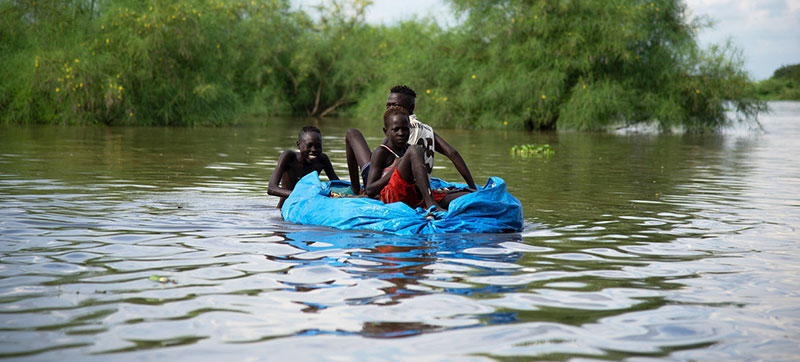 Green Industrial Revolution
Green Industrial Revolution
Green industrial policies key for climate adaptation in developing world
New York: Green industrial policies will be critical for developing countries to adapt to climate change, UN trade and development body UNCTAD said in a report published on Thursday.
The agency has called for a “transformative approach” that will allow these nations to address current and future climate threats while also driving growth and job creation.
The ‘eco-development trap’
UNCTAD said many developing countries are caught in an “eco-development trap” as vulnerability to economic and climate shocks are compounding each other, resulting in permanent disruption, economic uncertainty and slow productivity growth.
“The report demonstrates that sufficient action to adapt to the climate challenge will require a transformed approach that is proactive and strategic rather than simply retroactive,” said Rebeca Grynspan, the UNCTAD Secretary-General.
“But developing country governments need adequate policy and fiscal space to mobilize large-scale public investment to face future climate threats, while ensuring these investments complement development goals.”
The study is the second part to UNCTAD’s annual Trade and Development Report, which was released in September.
Adaptation costs rising
Although climate adaptation is viewed as a kind of “poor cousin” to mitigation, the UN agency said, this is both shortsighted and costly for developing countries, where climate shocks have damaged growth prospects and forced governments to reallocate scarce resources.
Adaptation costs for developing countries doubled over the past decade due to inaction, and are set to rise further as temperatures increase, reaching $300 billion in 2030 and $500 billion in 2050.
Although countries have been advised to strengthen climate resilience by improving data gathering and risk assessment techniques, the report argues that “adaptation is less a matter of risk management and more one of development planning”, with the state playing a key role.
Sustainable and meaningful impact
“Climate adaptation and development are inextricably connected and policy efforts to tackle adaptation must acknowledge this, in order to have a sustainable and meaningful impact,” said Richard Kozul-Wright, director of UNCTAD’s globalization and development strategies division, and lead author of the report.
He suggested that the only lasting solution, therefore, “is to establish more resilient economies through a process of structural transformation and reduce the dependence of developing countries on a small number of climate-sensitive activities.”
The report proposes that development can be “retrofitted” to implement green industrial policies which take local economic circumstances into consideration.
Renewable energy production, for example, can operate at a low scale, thus opening business opportunities for small firms and rural areas.
This would help to diversity economic production overall, reduce dependency on prime commodities, and even enlarge the tax base, helping create new domestic sources of development finance.
To escape the eco-development trap, the report recommends that climate adaptation in developing countries should include key features such as “abandoning austerity as the default policy framework”, large-scale public investment in renewable energy and green technologies, and adopting a green agricultural policy that protects small producers and the environment.
Support Our Journalism
We cannot do without you.. your contribution supports unbiased journalism
IBNS is not driven by any ism- not wokeism, not racism, not skewed secularism, not hyper right-wing or left liberal ideals, nor by any hardline religious beliefs or hyper nationalism. We want to serve you good old objective news, as they are. We do not judge or preach. We let people decide for themselves. We only try to present factual and well-sourced news.







